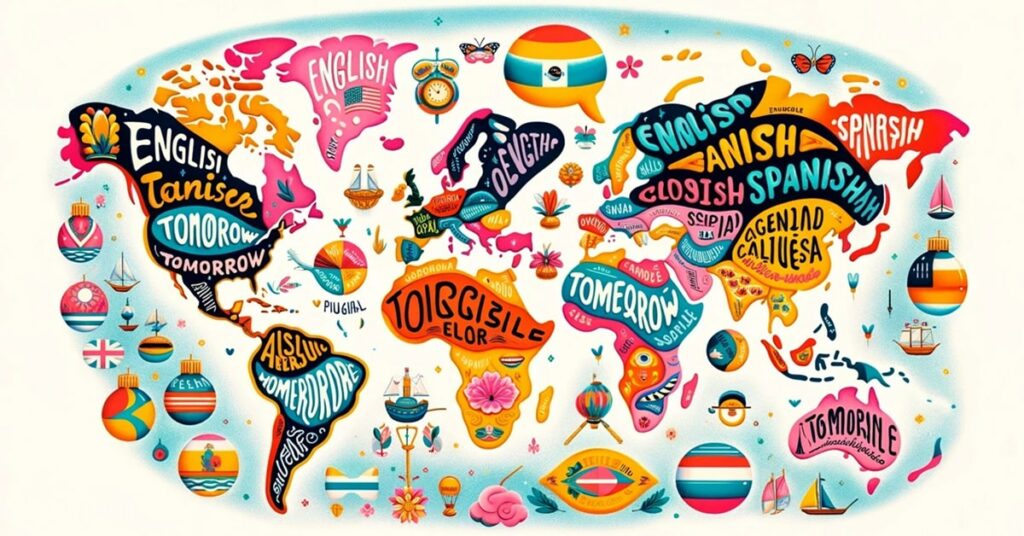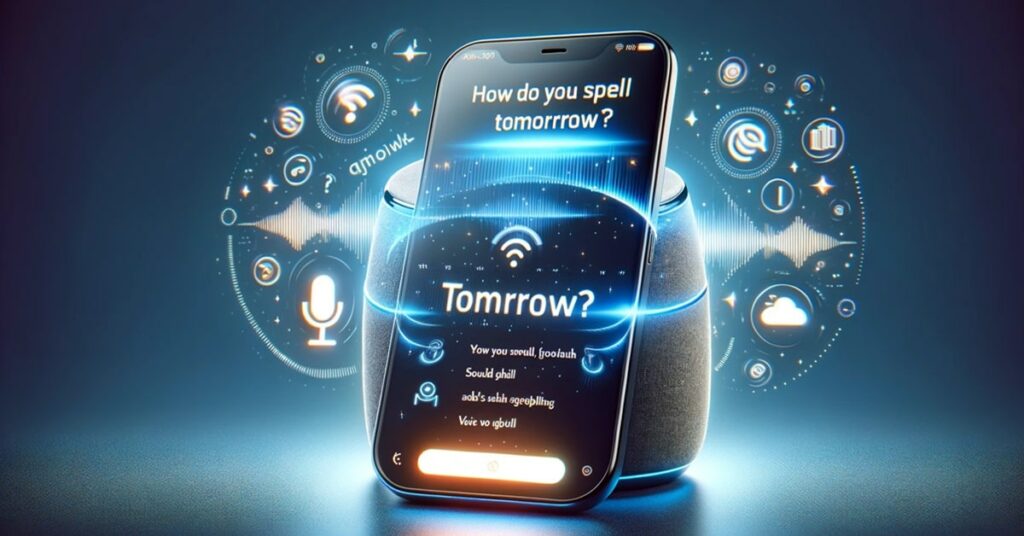The Correct Way to Spell ‘Tomorrow’ in English
Understanding the Spelling of ‘Tomorrow’
The word ‘tomorrow’ might seem straightforward, but it’s often misspelled, leading to confusion and errors in communication. The correct spelling is T-O-M-O-R-R-O-W. Despite its simplicity, common mistakes include doubling the wrong consonant or omitting one, such as “tommorow,” “tomorow,” or even “tommorrow.” These errors can detract from the clarity and professionalism of your writing.Tips to Remember the Spelling
- Split the Word: Think of it as “Tom” (a common name) + “or” (as in the choice) + “row” (a line). This breakdown makes it easier to remember which letters to double.
- Rhyme to Remember: Create a simple rhyme that you can easily recall, such as “Tom’s ore rowed back to the shore, spelled with double ‘r’ and nothing more.”
- Visual Cue: Associate the word with a visual image, like a calendar showing today with an arrow pointing to the next day, labeled ‘tomorrow’. This can help solidify the spelling in your memory.
“How Do You Spell Tomorrow?”: Common Queries Answered
When faced with the question, “How do you spell the word tomorrow?”, remember the tips above. Whether it’s a casual inquiry or a moment of doubt while writing, understanding the common mistakes and knowing how to counter them can boost your confidence in spelling. Digital tools and spellcheck features can also serve as a safety net, but relying on your knowledge and memory will always be indispensable.
By demystifying the spelling of ‘tomorrow’ in English, we lay the groundwork for clearer, more effective communication. As we proceed, let’s extend our linguistic exploration to the realms of Spanish and French, enriching our understanding of this common yet sometimes perplexing word.
Translating ‘Tomorrow’: Spelling in Spanish and French
How to Spell ‘Tomorrow’ in Spanish
In the Spanish language, ‘tomorrow’ translates to mañana. Unlike its English counterpart, ‘mañana’ doesn’t involve tricky double letters, but it does include a tilde (ñ), which is essential for its pronunciation and meaning. Remembering the phrase “see you tomorrow” as “nos vemos mañana” can be a helpful way to memorize the spelling, associating common farewells with the word itself.
When trying to spell ‘mañana,’ consider these pointers:
- The tilde over the ñ is crucial; without it, you might end up with a different word or nonsensical spelling.
- Associating the ñ sound with the English word “canyon” can help English speakers remember this unique aspect of Spanish spelling.
The French Perspective: Spelling ‘Tomorrow’
Turning to French, ‘tomorrow’ is spelled as demain. This word is shorter and, some might argue, simpler than its English and Spanish equivalents, with no double letters or special characters. However, the pronunciation can be a stumbling block for those less familiar with the nuances of French phonetics.
For English speakers, remembering ‘demain’ can be facilitated by:
- Associating it with the English phrase “the main” event happening tomorrow, linking the pronunciation of “demain” to a familiar English phrase.
- Remembering that in French, many words end with “ain,” and they often have a nasal sound, which is the case with ‘demain.’
Both ‘mañana’ and ‘demain’ represent the linguistic diversity and beauty of expressing the concept of ‘tomorrow’. By understanding the spelling in Spanish and French, we not only enrich our linguistic repertoire but also open doors to more accurate and meaningful cross-cultural communication.
Digital Assistants and Spelling Assistance
Leveraging Google for Spelling Queries
In an age where information is at our fingertips, digital assistants have become invaluable allies in our quest for knowledge, including spelling assistance. A simple voice command like, “Ok Google, how do you spell tomorrow?” can instantly dispel any doubts, making these tools indispensable for learners, writers, and the curious alike. Google Assistant, Siri, and similar AI-powered assistants not only provide the correct spelling but often include phonetic pronunciations, usage examples, and translations, offering a comprehensive understanding of the word in question.
Search Engine Results Pages (SERPs) have evolved to be more than just lists of links. Features like Knowledge Cards pop up with direct answers to queries such as spelling, definitions, and even synonyms. These cards, often sourced from reputable dictionaries and encyclopedias, offer a quick and authoritative reference, ensuring that accurate information is readily available to everyone.
Avoiding Miscommunication: The Importance of Correct Spelling
Correct spelling is the cornerstone of clear communication. Misplaced letters or incorrect spellings can lead to misunderstandings, misconstrued meanings, and sometimes, unintended humor. For instance, a misspelling in a formal email can alter the tone or professionalism perceived by the recipient, potentially affecting relationships or outcomes.
To illustrate the lighter side of such errors, consider the anecdote of a bakery that misinterpreted a birthday cake inscription request. Instead of writing “See you tomorrow,” the decorator spelled it “Sea you tomato.” While amusing, this example underscores the confusion that can arise from seemingly minor spelling mistakes.
By incorporating spelling checks into our writing process, whether through digital assistants, online tools, or personal diligence, we can significantly reduce the risk of miscommunication. Embracing the assistance of technology not only enhances our spelling accuracy but also enriches our language skills, bridging gaps and fostering clearer, more effective exchanges in our increasingly connected world.
Enhance Your Spelling Skills
Navigating the intricacies of language and spelling is a journey of constant learning and adaptation. Through this guide, we’ve explored the correct spelling of ‘tomorrow’ across English, Spanish, and French, unveiling the nuances that make each language unique. By understanding common errors and employing mnemonic devices, we can overcome the hurdles that often trip us up in our written communications.
The role of digital assistants and online resources in providing spelling assistance cannot be overstated. These tools offer immediate support, making it easier than ever to verify spellings and ensure our messages are clear and professional. However, relying solely on technology is not the solution; personal diligence and the willingness to learn are equally important.
As we continue to embrace the digital age, the importance of spelling and clear communication becomes increasingly paramount. I encourage you to practice the tips provided, explore the functionalities of digital assistants, and immerse yourself in the linguistic richness of multiple languages. The journey to mastering spelling is ongoing, and each step forward enriches our ability to express ourselves more accurately and connect with others more deeply.
Looking ahead, there’s much more to explore in the realm of language and communication. Future content may delve into the etymology of commonly used words, tackle the challenges of homonyms and homophones, or explore the impact of language evolution on spelling conventions. Whatever the topic, the goal remains the same: to enhance our understanding and mastery of language, making every word we write count.
![How Do You Spell ‘Tomorrow’ [100% Learn Spanish, French & English] A person writes in a journal at a cozy desk, with the word "tomorrow" in various forms above, signifying the learning process.](https://alohado.com/wp-content/uploads/2024/04/think-write-tomorrow-1024x536.jpg)

